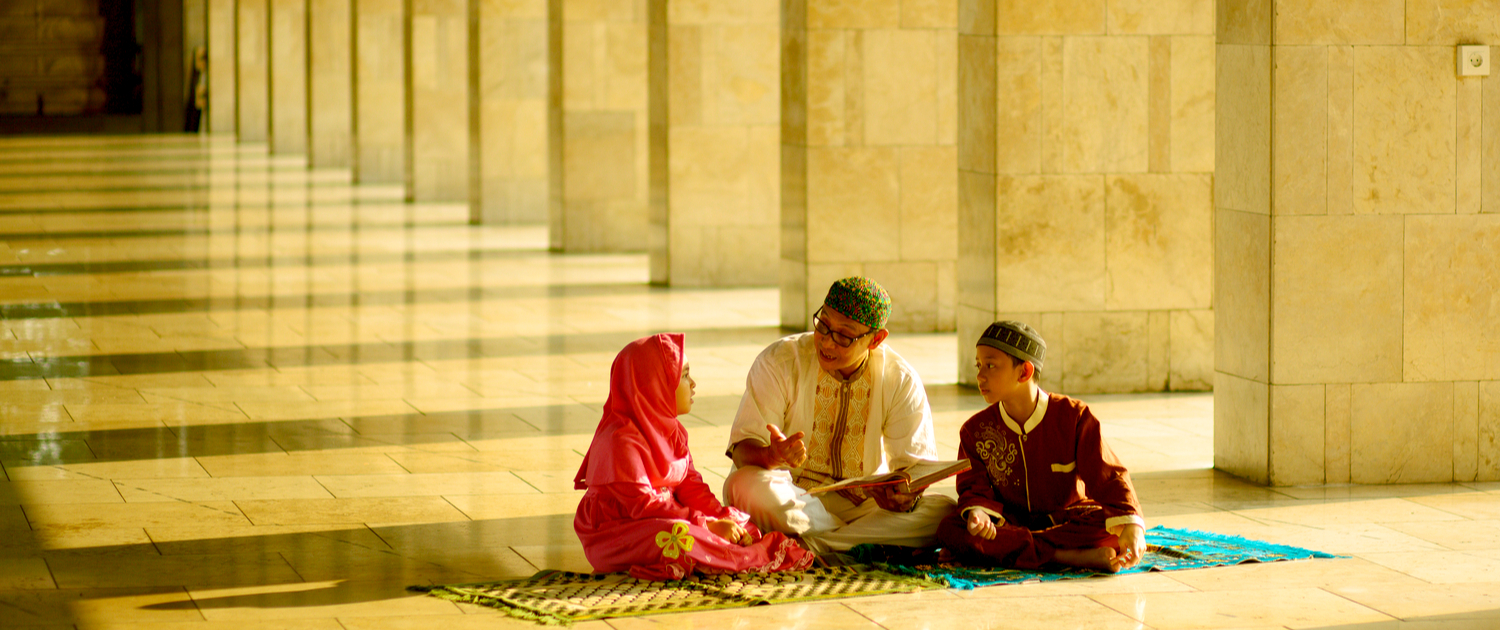Raising a Believing Generation by Habib Umar bin Hafiz: On Marriage
Raising a Believing Generation
(One) The Purpose and Benefits of Marriage
Compiled, translated and summarized by Shaykh Amin Buxton
Children are a trust (amanah) that Allah most High has gifted us with. Raising believing children is a huge challenge and every pious parent passionately prays that they will be able to do so. We are blessed to have such guidance from one of the most illuminated scholars of our time; Habib Umar bin Hafiz. We will explore insights from Habib Umar bin Hafiz on how to raise the next generation of believers.
Habib Umar bin Hafiz is a master of the science of tarbiyah – nurturing of the human soul in the pursuit of perfection. Here, he turns his attention to tarbiyah as it applies to raising the next generation of strong believers. Exploring Abdullah Nasih Ulwan’s work “Child Education in Islam”, he gives important insights and principles that any parent, carer or educator can make good use of. The journey starts with considerations to be taken before embarking on the journey of parenthood and even marriage itself. The first of the series ‘Raising a Believing Generation’ explores the purposes and benefits of marriage.
The Purpose and Benefits of Marriage
The process of raising a child does not begin when the child is born. It is the state of the mother and the father, their marriage and the household they have established which dictates how the child will be raised. For this reason, it is important to briefly explore some benefits of marriage.
Human Nature
Marriage allows people to fulfill many of their needs as human beings, whether those needs be physical, psychological or emotional. Islam does not encourage monasticism but instead recognizes human needs and channels them in the best way. The desire to marry is an aspect of the fitrah – a person’s primary nature that knows, recognizes, and inclines towards all that is good, beautiful, and pure.
The Prophet Muhammad (peace and blessings be upon him) is the perfect example of balance in every one of his roles and actions. In a famous hadith, three men came to ask the Prophet’s wives about his worship and private life. When the three men were told about it, they deemed his worship to be little and thought they needed to do more than him since his station was far higher than theirs. One of them said he would pray all night and never sleep; another said he would fast every single day; the third said he would remain celibate and never marry. When the Prophet heard this he said to them: “I swear by God that I have more fear of God and more awareness of Him than you, yet I fast some days and not others, I pray (in the night) and also sleep and I marry women. Whoever turns away from my Sunnah is not from me.” (Bukhari and Muslim)
Preserving the Human Race
Through marriage, the human race continues to exist and flourish. Allah points to this in several verses of the Quran:
It is God who has given you spouses from amongst yourselves and through them, He has given you children and grandchildren and provided you with good things (Quran, 16:72).
People, be mindful of your Lord, who created you from a single soul, and from it created its mate, and from the pair of them spread countless men and women far and wide (Quran, 4:1).
Preserving Lineage
Through marriage, the lineage or ancestral line is defined. One of the overriding aims of the Shariah, the Sacred Law, is to preserve the honor and status of children and this explains why marriage is legislated.
Protecting Society from Immorality
Through marriage, society is protected from immorality and social disunity. This is illustrated in the statement of the Prophet (peace and blessings be upon him): “Young people: whoever among you is able to marry should do so, because it helps him lower his gaze and guard his modesty. Whoever is not able to marry should fast, as fasting diminishes sexual urge.” (Bukhari and Muslim)
The Prophet (peace and blessings be upon him) also said: “If a person whose religion and character you are satisfied with comes to you with a proposal, accept his proposal. If you do not, trials will afflict the earth and corruption will become widespread.” (Tirmidhi)
Spiritual and Psychological Balance and Wellbeing
A good spouse is a source of tranquillity and peace for the other. Allah says:
Among His signs is that He created spouses from among yourselves for you to live with in tranquillity, and He placed between you affection and mercy. There truly are signs in this for those who reflect. (Quran, 30:21)
It is He who created you all from one soul, and from it made its mate so that he might find comfort and peace in her (Quran, 7:189)
The Arabic word for tranquillity is sakinah or sukun and derivatives of it are used in both these verses. It denotes stillness after motion. Marriage should provide this stillness, calm, and comfort to both spouses psychologically, spiritually, and physically. This state is then conducive to raising children.
About the Author
Shaykh Amin Buxton was born in London. He converted to Islam in 1999 and read Arabic and Islamic Studies at SOAS, University of London. He also studied the Islamic sciences in a traditional setting in both Syria and Yemen. He has edited and translated a number of books which include Imam al-Haddad’s ‘Beneficial Counsels’ and Umar al-Khatib’s ‘Prophetic Guidance’. Since 2017 he has resided with his family in Edinburgh, Scotland. He is involved in several educational and social initiatives including New to Islam Edinburgh and Rafah International. Shaykh Amin Buxton is producing a podcast for SeekersGuidance and is one of our esteemed internal scholars.
